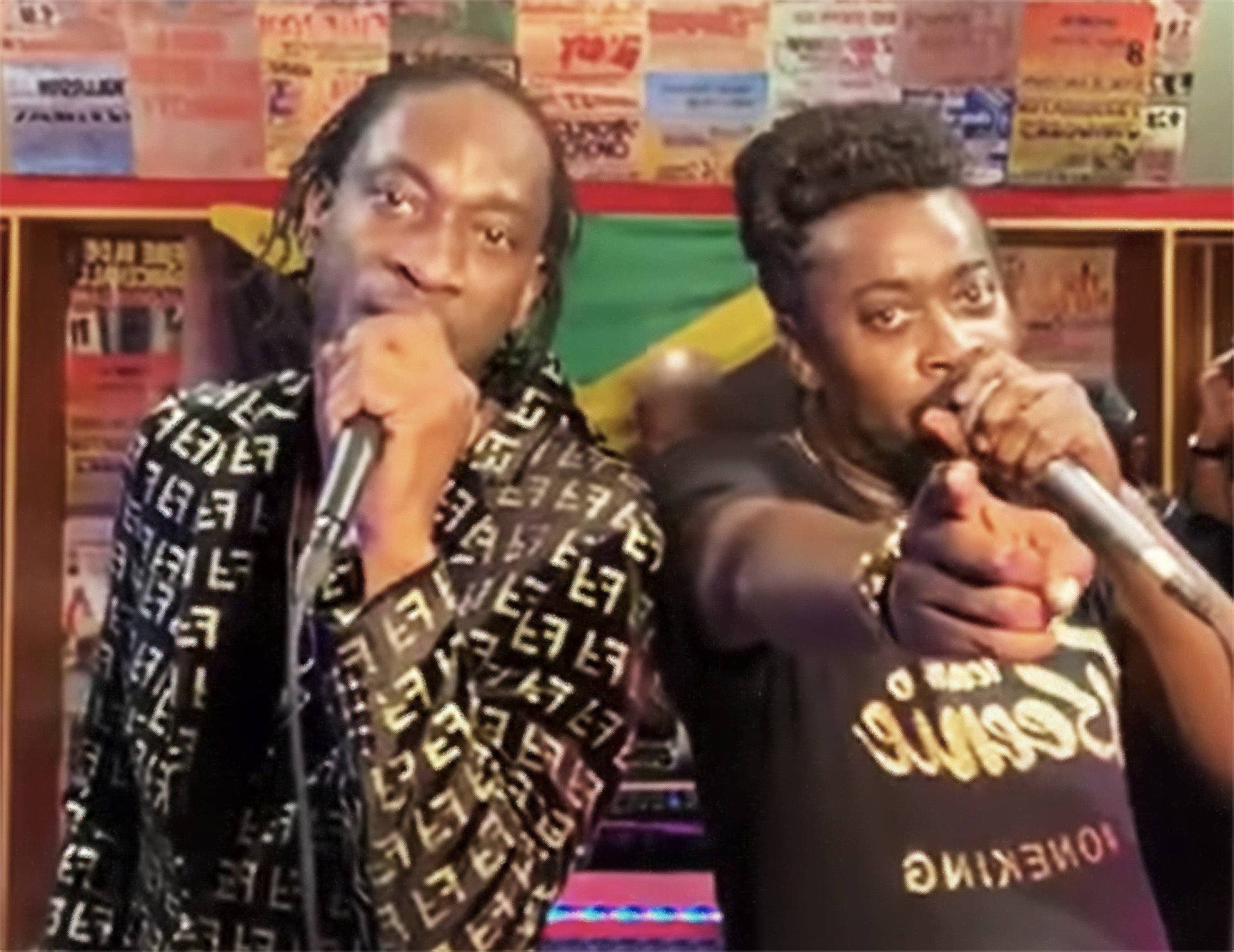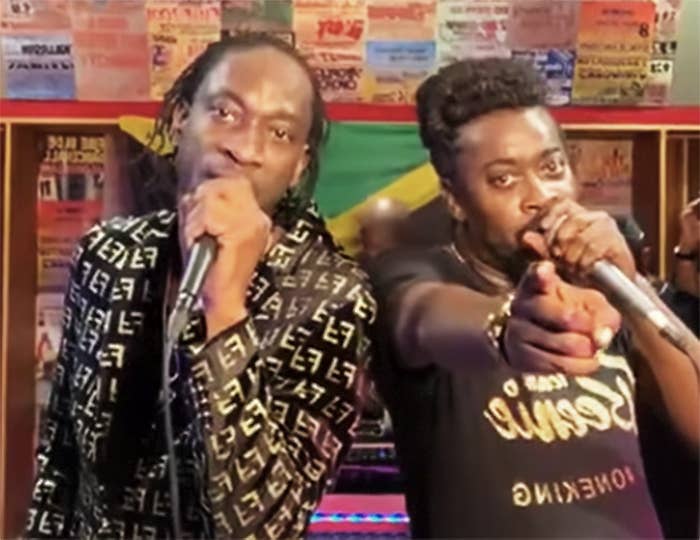
Shortly after the historic Verzuz battle between dancehall legends Beenie Man and Bounty Killer on May 23, Swizz Beatz and Timbaland took a moment for a celebratory chat on Instagram Live.
“King, tonight represented the authentic zone of why we didn’t sell 50% of the company for millions of dollars,” Swizz stated.
“Talk Swizz!” replied Timbaland, wearing shades while sipping from a red cup.
“The authentic zone of why we turned down millions and millions of dollars to the vultures just wantin’ to put a name next to the name,” Swizz continued. “But no… Respect is overdue. You understand? We haven’t made one cent off of Verzuz yet.”
“Nothing,” Timbaland affirmed.
“That don’t mean that we not business,” Swizz emphasized. “But what we have is… We have a museum. Verzuz is a museum. It’s an educational celebrational platform.”
Then Swizz returned his attention to the phenomenal clash of Jamaican dancehall giants that had just taken place on their booming digital platform. “What Beenie Man and Bounty Killer did tonight was iconic,” he said. “They was just gonna leave Beenie Man and Bounty Killer on the side of the road. And what did Verzuz do, Tim?”
“Let me tell you somethin’,” Timbaland offered. “To see them celebrate together? I was jumpin’ up out of my seat. I’m like, ‘Yo, this is amazin!’ Every Verzuz that we done, it reminded people how great these icons are.”
Two internationally renowned recording artists with four Grammy nominations between them, Beenie Man, born Moses Davis, and Bounty Killer, born Rodney Price, are living legends of dancehall reggae, the street music of Jamaica that helped inspire hip-hop, reggaeton, and Afrobeats. But as influential as dancehall has been to worldwide pop culture, it has always been relegated to underground status. Years of frustration boiled over last week when Beenie and Bounty were left off a Billboard magazine cover celebrating the success of Verzuz. It was just the latest instance of Jamaican artists being overlooked by mainstream American culture, and now dancehall fans are demanding respect for this mighty music from the streets of Kingston.
In an official pre-Verzuz interview with reggae and dancehall journalist and filmmaker Reshma B, Beenie and Bounty explained why they were excited and proud to be the first Jamaican artists invited to showcase their talents on the Verzuz platform. “Representing dancehall means everything to me,” explained Bounty Killer. “That’s what changed my life. It’s always important to lift up the youth and be the voice of the people.”
When Beenie Man got the call from Verzuz, he was ready to go. “It’s my culture, so it wasn’t a question,” he said. “Verzuz is about your life work and your legacy. It’s about how many hits that you have, and I have a lot.”
“Just give us respect. Recognize me for my work, for my job that I have done. No disrespect.” - Beenie Man
Anybody who witnessed the excitement of the first-ever dancehall Verzuz will never forget the energy. Laying to rest all speculation about whether Jamaican Wi-Fi would be able to handle the traffic, the Digicel signal was strong and clear. In fact, the all-Jamaican Verzuz was the series’ highest-quality production up to that time, raising the bar for all battles to come. It also put up huge numbers, generating more than 1.25 billion social media impressions.
“We got that together in 4 days,” says Sharon Burke of Jamaica’s Solid Agency, Bounty Killer’s longtime management firm, who first suggested the idea of a dancehall clash to Swizz. “I called him and said it’s time for Bounty and Beenie,” recalls Burke. “He said, ‘Can you do that?’ and I said ‘Yes, sure,’ because he has always been family to us.”
“What shines through in Bounty and Beenie’s Verzuz battle is their excellence,” explains Pat McKay, director of reggae programming for Sirius/XM Radio. “That’s what’s going to push Jamaican music forward is excellence.”
“I think that everyone was aware of this Verzuz and the impact of the dancehall artists,” says Jamaican DJ and media personality Sparkie Baby. “It wasn’t a normal impact. It wasn’t a mediocre impact. It was a massive impact.”
“The Beenie and Bounty Verzuz was not just a proud moment for Jamaica, but the entire Caribbean,” adds Brooklyn-based Jamaican comedian Majah Hype.
The worldwide dancehall audience turned out in great numbers, as did international stars like Diddy and Rihanna, who were all in the comments like, “Brap! Brap! Brap!” Even the Prime Minister of Jamaica, Andrew Holness, tuned in for the big event.
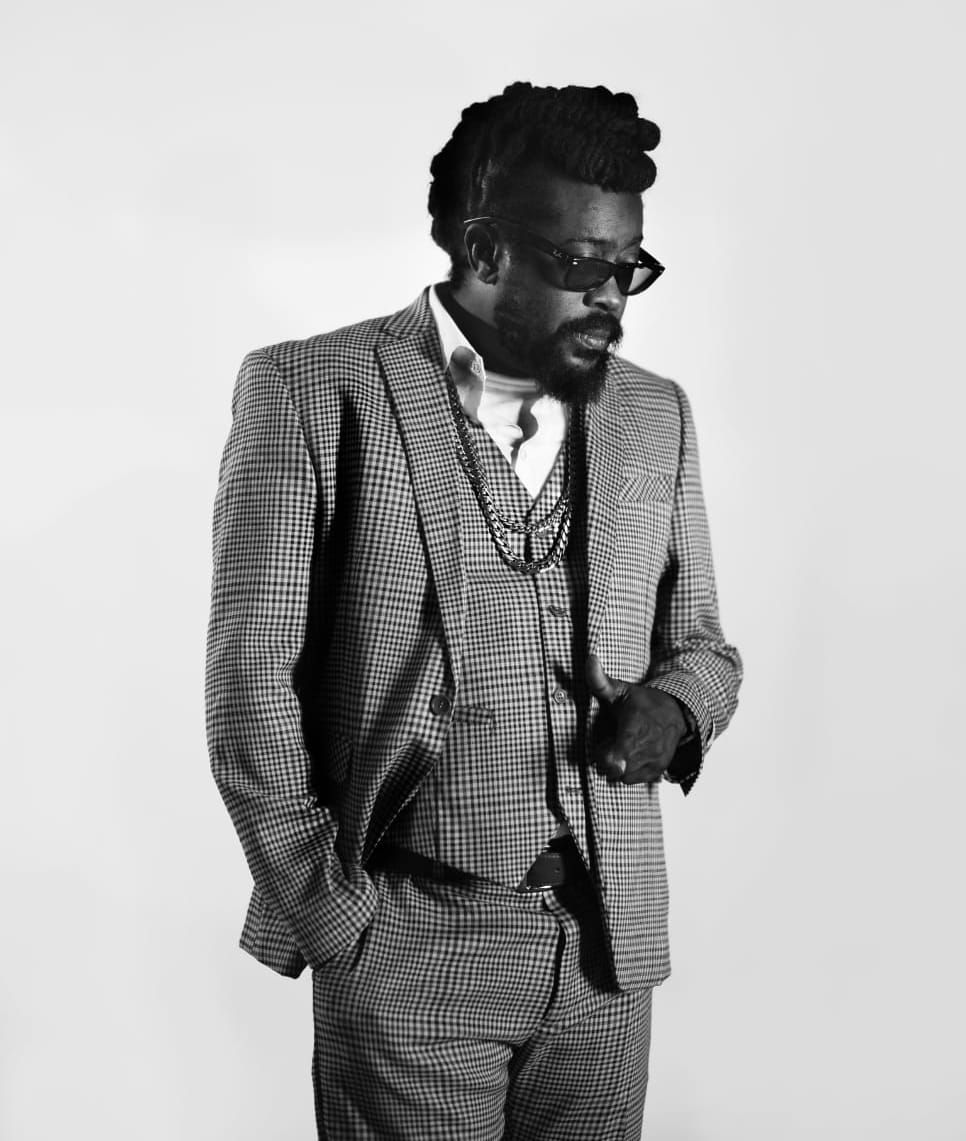
From the moment Bounty and Beenie stood at attention as the Jamaican National Anthem played, it was clear that this was going to be no ordinary Verzuz. Instead of casually chit-chatting and playing clips of songs back and forth over a spotty IG connection, the competitors were together in the same room, microphones in hand, with sound system selectors ready to run the tunes—just as these iconic artists have been doing since they started their respective careers in the streets of Kingston.
“Where were you last night when Jamaica took over Instagram Live?” said one video blogger. “Jamaicans do Jamaica tings, mon! Jamaicans can’t do nothing regular ever—never!” He added, “From now on, any Verzuz battle that happen on Instagram, we need a halftime where Jamaican artists come through that thing like, ‘More fire! More fire! Boop boop boop!’”
Both artists saw their streaming numbers spike to record levels, and Beenie recorded a song called “Do You Wanna Be That Guy”—inspired by the moment when police interrupted the session—as well as a merch line selling designs commemorating the clash.
Bounty and Beenie would prove to be a tough act to follow. A few days later, R&B group Jagged Edge faced off against 112 in a Verzuz battle plagued by technical problems. Verzuz did not release total media impressions for the battle of the R&B groups nor for the emotional gospel edition following the murder of George Floyd. After these two battles, Verzuz took a brief hiatus and then came back with bigger stars in a format that mirrored the one pioneered by the Jamaican crew. Alicia Keys and John Legend were presented in this format, generating one billion overall impressions—a respectable number, but fewer than Beenie and Bounty.
The excitement and social media buzz surrounding Beenie Man and Bounty Killer’s remarkable performance helped to bring about a big business deal for Verzuz. Their clash took place less than a month before Swizz and Timbaland’s “celebrational educational museum” announced a lucrative partnership with Apple Music and Apple+ TV, as well as a multimillion-dollar sponsorship deal with Diageo, the parent company of Ciroc.
This was big news during a hard time for musicians, when the pandemic has shut down live shows and festivals worldwide, and it was rightfully celebrated in a recent Billboard cover story titled The Verzuz Effect. But when the story rolled out last week, the celebratory moment was marred by an oversight: Beenie Man and Bounty Killer were nowhere to be found on the cover image. Swizz and Timbaland were front and center, followed by Snoop and DMX, Alicia Keys and John Legend, Erykah Badu and Jill Scott, Teddy Riley and Babyface. Even gospel acts Fred Hammond and Kirk Franklin made the cut.
Disappointed dancehall fans vented their frustration, flooding the comments section with Jamaican flags, fire emojis, and all sorts of commentary.
Responding to the social media outcry, Swizz, Timbaland, and Verzuz quickly posted a new Photoshopped cover placing Beenie and Bounty in front of their own faces. “To our fans,” Swizz wrote, “while we are honored that Verzuz made the cover of Billboard, this would not have been possible without Beenie Man & Bounty Killer, who set a big tone for our audience and represented for Jamaica.” The statement went on to thank Billboard for the acknowledgment, but said “we feel this version of the cover best represents the Verzuz Effect.”
“These are two of the most pioneering recording artists ever,” says Pat McKay. “Beenie recorded with Janet Jackson. Bounty recorded with No Doubt. They both deserve better.”
Supporters of Jamaican music all over the world felt that the critical role Beenie and Bounty played in the success of Verzuz had gone unappreciated. “After proudly standing amongst all these other stars, to be left off the cover feels like a slap in the face,” says McKay. “Consider what they contributed to the fabric of American music in the ’90s. Beenie and Bounty have always been open-armed and adventurous creatively. So I think a lot of respect is due.”
“Everyone is upset about the cover,” says Burke. “It’s a digital cover, so I think it should be changed.”
Burke says she is proud of the impact that Bounty and Beenie’s successful Verzuz battle has had. “It has benefitted dancehall,” she explains. “It has benefited the country, it has benefitted other artists, producers, promoters—a lot of people.” Her only regret is that Bounty and Beenie were left out of some mainstream conversations. “Our music is such a strength in the world,” she says. “We should get more recognition.”
”Jamaican dancehall culture has spawned about eight different genres of music, including hip-hop itself,” says Sparkie Baby. “This whole Verzuz format came about because of Jamaican sound clash and here we are. We were invited to the table and Jamaica did exceedingly well. Leaving these two legends off feels like a high level of disrespect.”
“This little island has touched the globe, but there’s a stigma of the way the country is looked at. Everybody talks about the WiFi. Do you think there are no legitimate studios in Jamaica?” - Majah Hype
Max-O-Matic, the Barcelona-based illustrator who was commissioned to create the cover image referred our questions to his agent, Annabeth Rogers Faucher, who explained the creative process. “A publication will reach out to an artist usually with a clear brief in mind which the artist follows,” said the agent. “In this case, Billboard let us know who the illo needed to feature and included the order of prominence for the composition. We've also let the Billboard team know that Max is available and happy to do an amended version.” Billboard declined to comment for this story.
Magazine covers often spark debate and controversy, and no major publication is likely to redo their cover based on social media feedback. But the controversy is about more than one magazine cover. Seeing two legendary artists from the Caribbean left out of a mainstream pop culture conversation that they impacted so profoundly taps into larger issues that have been happening for years.
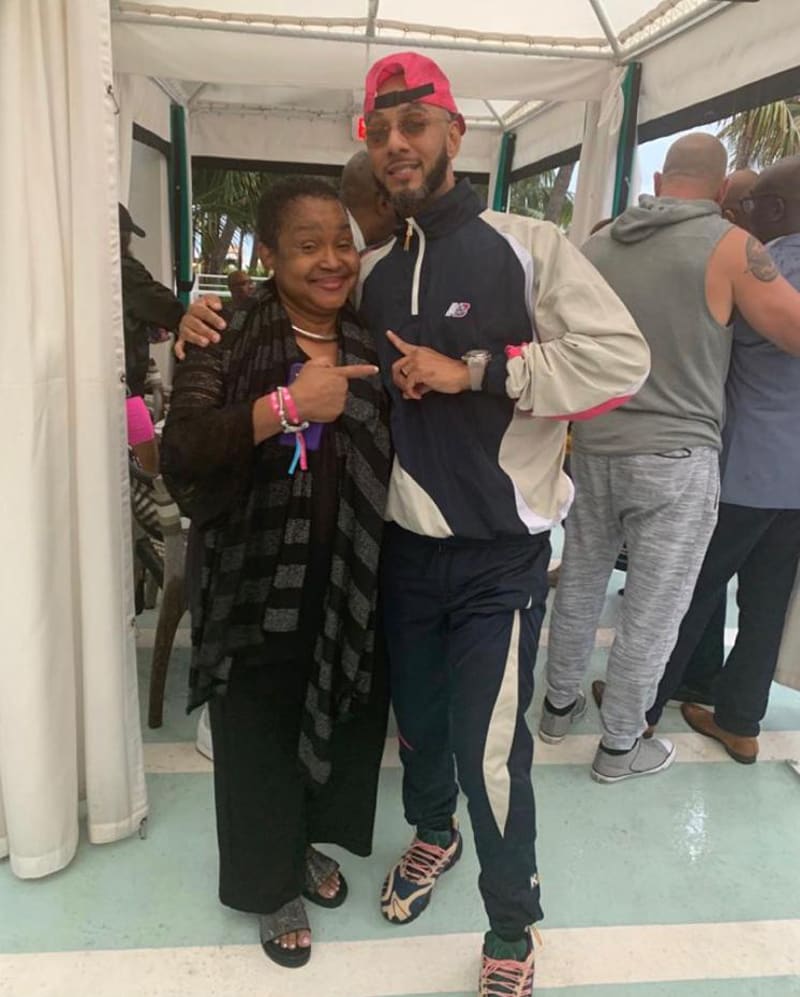
“This little island has touched the globe,” Majah Hype says. “But there’s a stigma of the way the country is looked at. Everybody talks about the WiFi. Do you think there are no legitimate studios in Jamaica? You think someone is in the bathroom strumming a guitar? I think it’s ignorance and people have to have some interest in enlightening themselves. Caribbean culture is recognized, but it’s not seen as part of the mainstream culture.”
“Jamaicans have so many times felt that their contribution to world music—and to hip-hop in particular—has been undervalued,” says Jamaican novelist and music aficionado Colin Channer. “So I think they were primed for this response. And let us not forget, Jamaicans feel they are the greatest at everything,” he adds with a hearty laugh. “So we’re not shy about demanding a big up.”
As the Billboard cover rolled out, Jamaicans had other reasons to celebrate. On August 7 dancehall star Popcaan released his OVO-stamped Fixtape with features by Drake, French Montana, and PartyNextDoor. August 11 marked the 47th anniversary of Jamaican DJ Kool Herc stringing up a sound system in the Bronx to create a new genre of music that would go on to dominate the entire world. That was also the day Senator Kamala Harris—whose father is a Jamaican citizen—was selected as Joe Biden’s Vice Presidential running mate, the first woman of Caribbean heritage to run for the office.
“The same thing that gives us joy in the Kamala Harris selection is the same thing that causes us the sadness in the exclusion,” says McKay. “It’s the opposite side of that prism—the disappointment.” McKay would like to see the two dancehall icons harness their popularity and go on tour when circumstances allow. “Remember when Kool Moe Dee and Kane went on tour?” she asks. “It was excellent, and such a smart thing to do.”
“We come together regularly to do this, so this is vintage shit. It wasn’t like, just take Jada and Fabolous and put them together. There’s a fanbase for Bounty and Beenie clashing.” - Bounty Killer
McKay points out that even the King of Reggae himself struggled to be accepted by an African-American audience. “Play I on the R&B,” Bob Marley sang on one classic cut from his Rastaman Vibration album. “I want all my people to see.” Marley never stopped pushing for his music to be accepted worldwide. “The best way to approach it is with the aspiration of reggae to spread love,” says McKay. “It’s easy to get bitter and all of that. But if Bob didn’t get bitter, do we really have a right to get bitter?”
“There is a hashtag going around now, #TimeNow,” says Sparkie Baby. “It’s basically everyone saying enough is enough. When are you all gonna give us our due credit? When are you going to acknowledge the Caribbean for what they brought to the culture? Let’s not forget there would be no rap without dancehall. When are you guys gonna give us our just due? We have to give more strength to our own platforms. There’s no way you can go around that.”
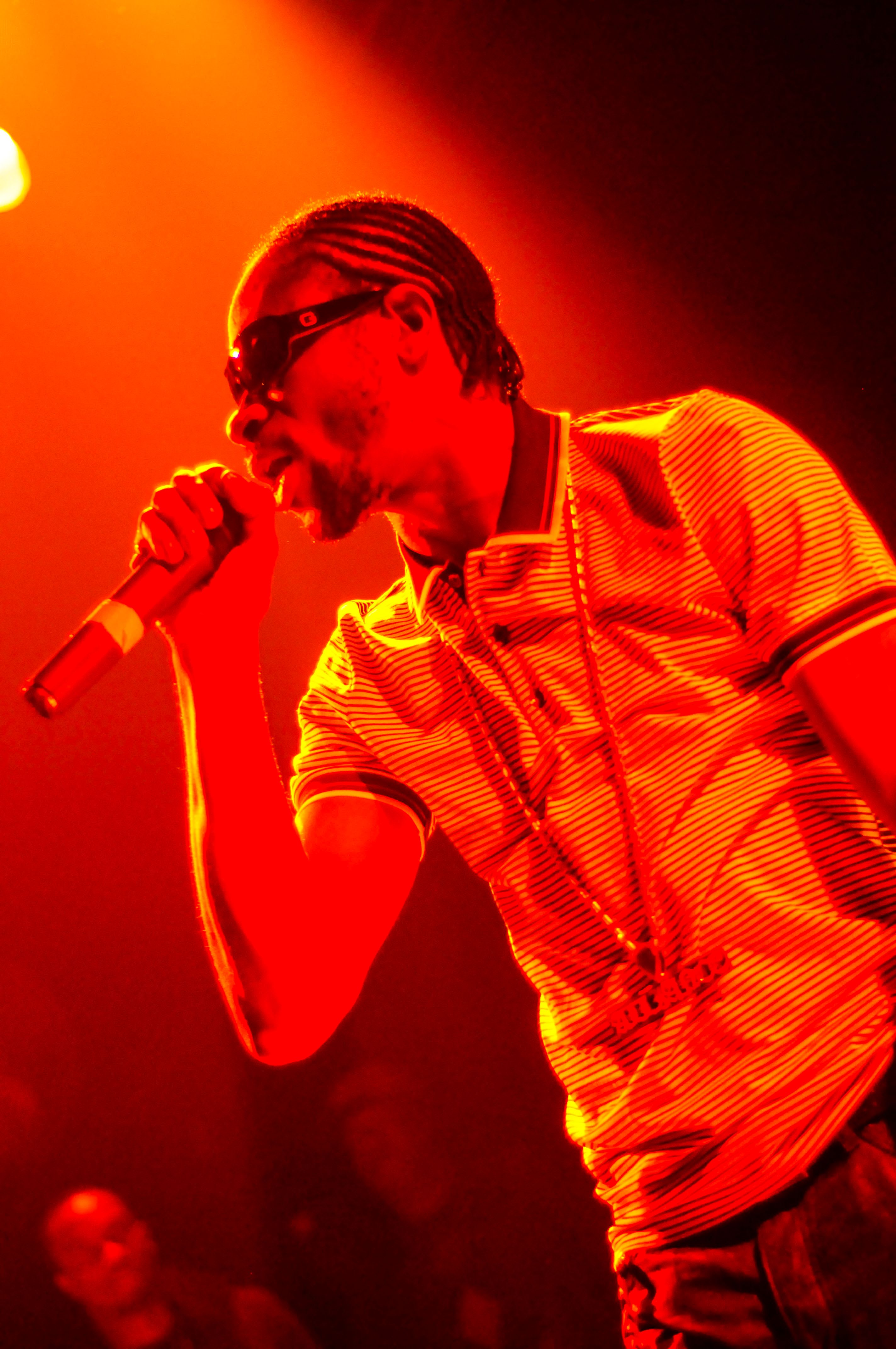
The artists themselves are speaking out and giving their strength to the movement as well. “If you are a creative, a entertainer, or a contributor to #Dancehall and #Reggae TALK UP #TimeNow,” Beenie Man wrote on his Instagram.
“Hip-hop became such a big thing, people forget where they originate from,” Bounty Killer tells Complex, in his first interview since the Billboard cover appeared. “Beenie and Bounty made Verzuz commercial,” he explained. “We were the ones who make Verzuz followers go up to a million. We are the ones who make them step up the whole standards and they end up getting a deal with Apple and all that shit. It wasn’t streaming on Apple when we done it. They saw the numbers.”
Aside from their commercial impact, Bounty Killer points out that he and Beenie changed the whole format of the popular series. “When Verzuz was invented, it was a split screen in two separate places,” he says. “Now they all have to go in one room. Who set that pace? Who set that trend? Who set that tone?”
Unlike previous Verzuz match-ups, which were conceived by Swizz and Timbaland, Beenie and Bounty’s Verzuz tapped into a legacy of competition that stretches back over a quarter century. “It’s not just putting two people together,” says Killer. “We come together regularly to do this, so this is vintage shit. It wasn't like, just take Jada and Fabolous and put them together. There’s a fanbase for Bounty and Beenie clashing.”
As for all the jokes about Jamaican Wi-Fi, Bounty Killer was not amused. “People think we have nothing up to standard,” he says. “We have a high standard here. This is Jamaica, one of the advancing Third World countries.”
Bounty Killer has a long professional relationship with Swizz Beatz and doesn’t hold him personally responsible for what happened. “Swizz is a man who’s been producing Bounty Killer for years,” says Killer. “He is my friend and I can’t make one article mash up the relationship. He is not the owner of the magazine. He owns Verzuz and he reached out to us to be a part of it so we have to look at that as something good.” However, Bounty Killer says he wasn’t happy with the cover rollout. “When they [Swizz team] saw [the original cover] they shouldn't have posted. That kind of makes them look bad. But the fact that he comes publicly and says that this is the right way it should be and whatever, we have to take his word.”
More than anything, the Warlord appreciates the fans who supported him and Beenie during this historic moment. “We already impact 500,000 people,” says Killer. “Everybody felt what Verzuz did. The impact has already been made.”
Likewise, Beenie Man emphasizes that nothing can detract from what he and Bounty Killer have accomplished. “First, I appreciate that Verzuz invited us,” Beenie says in his first exclusive interview since the cover controversy. “The thing was magnificent, and for us to set that trend as Jamaicans amongst billion-dollar companies… For us to be one of the biggest Verzuz is one of the greatest feelings for I & I.”
“Remember we nah beg nobody to do nuttin’,” he adds. “We just do what we have to do from Jamaica, and it reach. Anytime you mention Verzuz, people are always going to say Beenie Man and Bounty Killer, so if you write anything about Verzuz, you should put us first.”
Beenie is proud of the fact that he and Bounty put up such impressive numbers without an Apple Music partnership. Likewise, he sees artists from around the world imitating Jamaican styles as the sincerest form of flattery. “We know dancehall is that big and that international,” he says. “Them sleep on it because them want it for themselves. Every artist from America and Canada that sing dancehall think they are bigger than every artist who actually do dancehall. And them feel like them is who make it happen. But once we did that Verzuz, we know the world have to open up.”
Never one to let an opportunity pass him by, Beenie Man is preparing an album inspired by the new rush of interest in his music. “There is no publicity which is bad publicity,” he says. “We still come out looking like heroes. Hear me now, I have a new album coming out, this one is called Simma. It’s talking about all these things that people talking about that need to simmer. The thing is still here—don’t worry about it.”
Having spent the majority of his life in the music business, Beenie Man has seen this sort of thing before. “We’ve been through this fight right through,” he says. “This has been going on before us. If we can do something about this right now, yes we’re supposed to do it. The people don’t want to see us drop off. You’re supposed to give recognition and know why these two American artists put these two Jamaican legends on the show—to make the world know that dancehall music is international.”
“Just give us respect,” Beenie Man says. “Recognize me for my work, for my job that I have done. No disrespect. You are talking about the effect of Verzuz, we have the most greatest effect. But we nah beg you for it, because we work and we get it from the people. Remember, our music is worldwide. Even the last part of China, a man tune in and say, ‘Oh Bounty and Beenie! We have to watch this.’ A serious thing deh.”
Additional reporting from Reshma B

